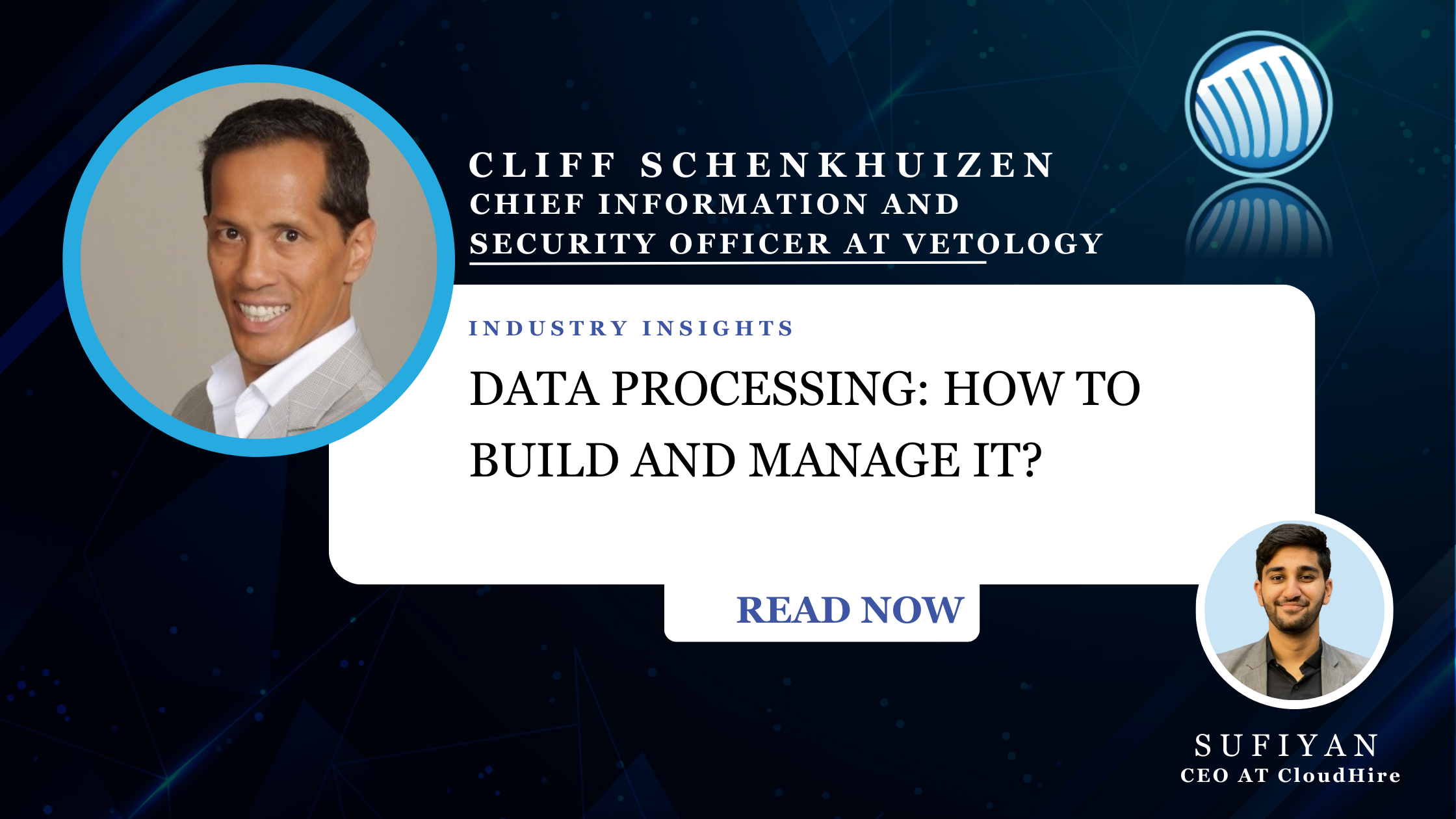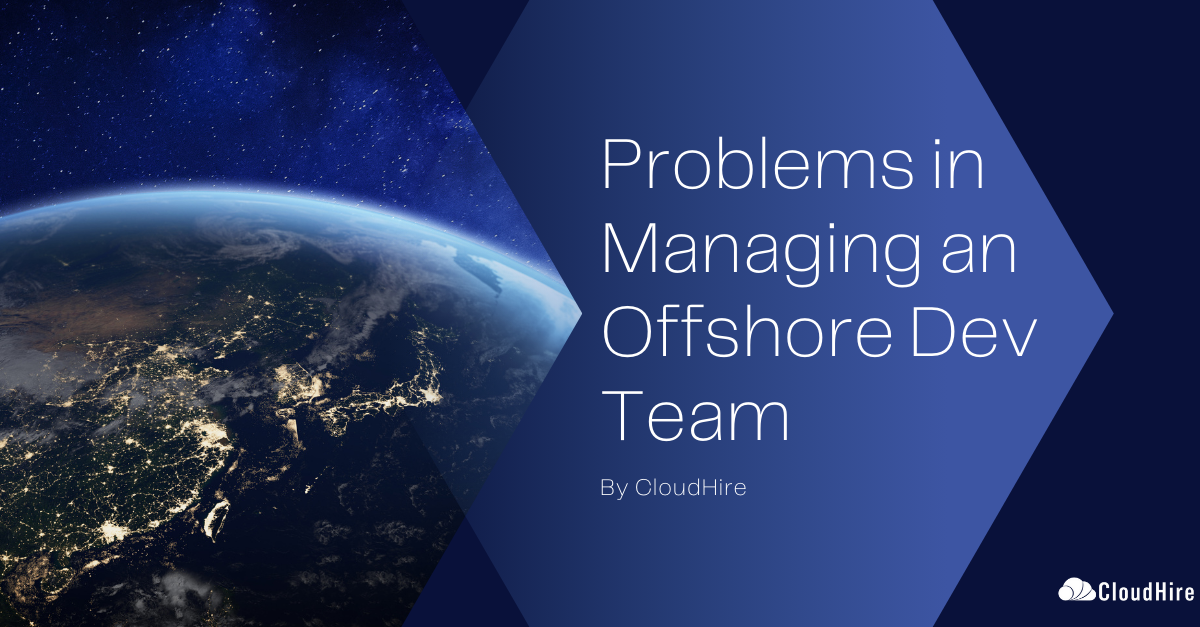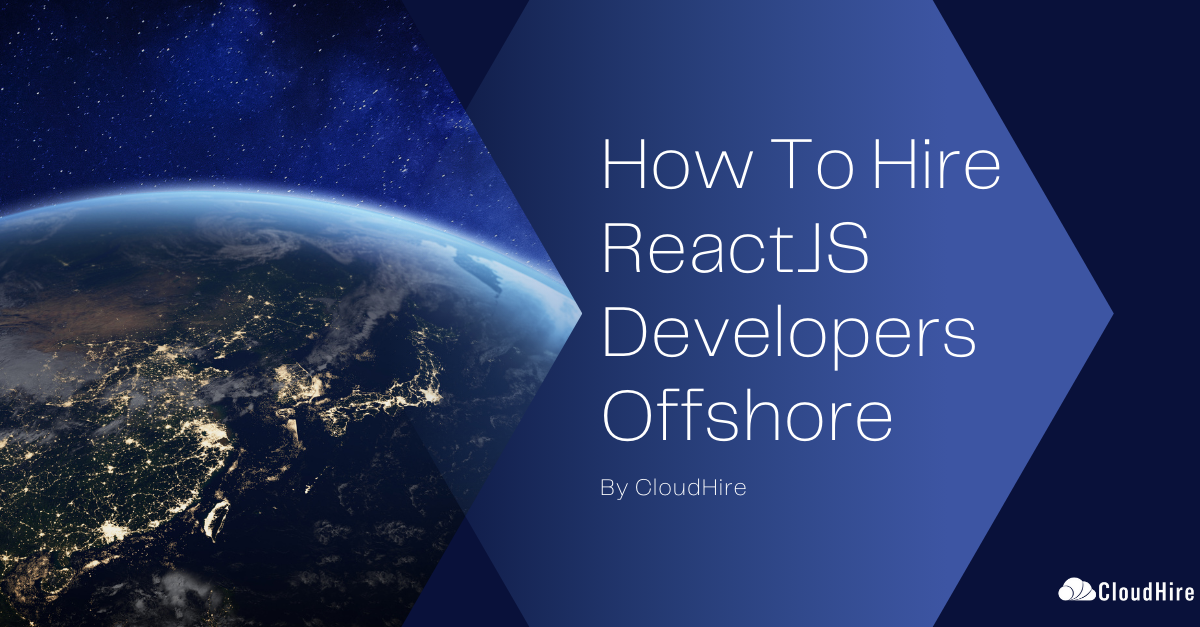Introduction and Company Overview
Sufiyan, the visionary behind CloudHire, has positioned the company as a leader in the AI-driven talent industry. By focusing on the intersection of artificial intelligence and human resources, CloudHire is setting new standards for how businesses identify, recruit, and manage talent in the digital age.
CloudHire‘s business model capitalizes on the growing demand for remote work and specialized talent. The company generates revenue through remote staffing solutions and onshore talent search consultancy, offering clients tailored services that address their specific workforce needs while leveraging AI to streamline the hiring process.
Cliff is part of the executive leadership team at Vetology, and plays a critical role in Vetology’s executive leadership, guiding the company’s strategic direction and operational efficiency. While not a founder, his contributions have been instrumental in advancing Vetology’s mission to revolutionize veterinary care through AI-powered solutions.
Vetology’s flagship AI product is designed to enhance veterinary diagnostics by reading pet X-rays and generating human-readable radiology reports. This innovation not only improves the accuracy and speed of diagnoses but also provides veterinarians with a reliable tool to better serve their animal patients.
The versatility of Vetology’s AI is evident in its ability to diagnose conditions across various regions of the body and multiple species. This broad functionality makes it a valuable asset in veterinary practices, where a wide range of diagnostic challenges can be addressed with a single, powerful tool.
Vetology’s AI goes beyond simple diagnostics by normalizing, cropping, orienting, and validating X-ray images. These capabilities ensure that the images are optimally prepared for analysis, enhancing the accuracy of the AI’s diagnoses and providing veterinarians with clear, actionable insights.
AI Model Training and Data Processing

Vetology’s journey began with an impressive data set of 50 terabytes of pet X-rays and related reports, all thanks to the experience and foresight of one of its founders. With over 11 years in the brick-and-mortar imaging industry, the founder has amassed a substantial amount of data from various sources, including radiography. However, not all of this data was immediately ready for AI model training. Only about 10% of the data met the criteria for usability, which highlights the challenges of working with real-world data.
This underscores the importance of data quality in AI development. Businesses looking to leverage AI must recognize that having a large volume of data is just the starting point. Ensuring that data is clean, relevant, and well-organized is critical for effective model training. This often requires significant preprocessing efforts, which should be factored into the overall project timeline and resources.
They use various training pipelines based on the quality of input data.
To navigate the varying quality of input data, the Vetology team is trained to identify straightforward features in the data to teach the AI to recognize them. Despite this diversity, the labeling process is ultimately overseen by the founder or a board-certified radiologist, ensuring that the final data used for training is accurate and reliable.
The key takeaway here is that the success of AI initiatives often hinges on a well-structured training process. By customizing training pipelines and involving domain experts in the final stages of data preparation, companies can improve the accuracy of their AI models. This approach is especially valuable in industries where precision is critical, such as healthcare, where incorrect labeling can lead to significant errors in model output.
Vetology combines binary classifiers to make medical diagnoses
Each one is designed to recognize specific conditions and thus, facilitates medical diagnoses, Vetology combines multiple binary classifiers. One of the challenges they face is balancing the time that radiologists spend between reading cases and labeling data. Since employing a medical professional as a full-time labeler is costly, Vetology’s radiologists take on dual roles. While they read cases as part of their teleradiology business, they also allocate time to label data, thus contributing to the AI model training process. This strategy can be particularly effective in environments where specialist input is needed but resources are limited. It also emphasizes the need for creative staffing solutions when working with high-cost, high-skill professionals.
Vetology extends its resource pool by leveraging out-of-country professionals, including veterinary technicians and non-board-certified radiologists. This approach not only helps in managing costs but also ensures that the labeling and training process is continuous and efficient. By bringing in these additional resources, Vetology can maintain the quality and quantity of labeled data without overburdening its in-house radiologists.
The lesson here is the value of global talent sourcing in AI projects. By strategically utilizing international resources, companies can reduce costs and enhance their operational capacity. This approach is particularly beneficial for businesses looking to scale their AI initiatives without compromising on quality or efficiency. It’s a reminder that in the global economy, tapping into diverse talent pools can be a game-changer for technological innovation.
CloudHire is a good example of how AI models can be trained to get the best results. Its recruitment platform – Cloudy Recruiter uses AI for precise talent selection. By precise, it means the exact candidate the client needs to do a certain job in the given time frame and even in the same time zone if that is a requirement.
Product Development and Subscription Model

Vetology has adopted a subscription-based model for their AI service, focusing on addressing the most common conditions rather than striving for 100% coverage. This approach allows them to continuously update their product with new features and classifiers, ensuring that their offering remains relevant and responsive to user needs over time.
The key takeaway here is the strategic advantage of prioritizing flexibility and adaptability in product development. Instead of aiming for perfection from the outset, businesses can focus on delivering value in stages, with a commitment to ongoing improvement. This approach not only keeps customers engaged but also allows for quicker iterations and adjustments based on real-world feedback.
Vetology understands the need to include basic but crucial details in their reports, such as detecting pregnancy in animals—a relatively simple task. Although it might seem too basic to be included, omitting such information could raise questions about the credibility of one’s platform. This insight helps us understand that even seemingly minor details are essential for building trust and legitimacy in reports.
The lesson here is the significance of not overlooking the basics in product development, even when they seem trivial. Overlooking these details can undermine the perceived value of the service, making it clear that thoroughness in all aspects, big or small, is non-negotiable.
Subscription models like that of CloudHire, help the clients see the value in the service while keeping an open window for discussion when they’re looking to build a team that excels in data processing.
Vetology strikes a balance between offering a broad range of services and maintaining the viability of its product by keeping its focus on assisting, rather than replacing, radiologists. They embed features that enhance credibility while reducing effort and time, all while acknowledging that not every possible condition can be covered—particularly those rare, one-in-a-hundred cases. Their strategy revolves around prioritizing efforts that bring them closer to their core goals.
This approach highlights the importance of focus in product development. Rather than spreading resources thin in an attempt to cover every possible scenario, companies should concentrate on the areas that align most closely with their mission and that provide the greatest value to their users. This focus not only enhances product viability but also ensures that the offering remains practical and user-centric.
Data Privacy and Acquisition

Veterinary data has fewer privacy restrictions compared to human medical data
In the field of veterinary medicine, data privacy regulations are generally less stringent than those governing human medical data. This difference allows companies like Vetology to access and utilize veterinary data with fewer legal and regulatory barriers, enabling faster and more flexible data acquisition processes for their AI models.
The takeaway here is the importance of understanding the regulatory landscape when working with data. Companies should leverage the advantages of less restrictive environments while still being mindful of ethical considerations. This awareness can significantly streamline data acquisition and processing, giving businesses a competitive edge in data-driven industries.
Vetology can source veterinary data more readily from organizations such as humane societies. These entities often have large volumes of relevant data, which can be a valuable resource for training AI models. This ease of access not only accelerates the data-gathering process but also opens up opportunities for collaboration with various organizations in the veterinary field.
This highlights the value of building partnerships with data-rich organizations. By identifying and collaborating with institutions that already possess large datasets, companies can reduce the time and cost associated with data collection. Such partnerships can also lead to mutually beneficial relationships, where both parties gain from the exchange of data and expertise.
Despite the fewer restrictions on veterinary data, Vetology remains committed to maintaining strong data security and privacy practices. They understand that safeguarding this data is crucial not only for legal compliance but also for building trust with their clients and partners. This commitment ensures that even in a less regulated environment, data integrity is never compromised.
The lesson here is that data security and privacy should always be a priority, regardless of the level of regulatory oversight. By implementing robust security measures, companies can protect sensitive information and enhance their reputation as trustworthy custodians of data. This proactive approach can also prepare businesses for future regulations that may become more stringent over time.
Vetology continuously seeks to optimize its data processing pipeline to improve efficiency and accuracy. This involves regularly evaluating and refining their processes to ensure that they are making the best use of their data resources. By doing so, they can enhance the performance of their AI models and deliver better results to their users.
The action point here is the importance of ongoing process optimization in data-driven projects. Companies should routinely assess their data processing workflows to identify areas for improvement. By optimizing these pipelines, businesses can achieve higher levels of efficiency, reduce costs, and ultimately deliver more effective solutions to their customers.
Conclusion
CloudHire and Vetology are prime examples of how companies can harness the power of AI to revolutionize their respective industries. CloudHire’s strategic focus on remote staffing and onshore talent consultancy demonstrates how AI can streamline traditional HR functions, making talent acquisition more efficient and precise. By understanding the demands of a digital workforce, CloudHire continues to set new benchmarks in AI-driven talent management, offering businesses innovative ways to build and maintain a competitive edge.
AI in veterinary care improves diagnoses and efficiency, as shown by Vetology’s innovative approach. Through careful data management, strategic use of global resources, and a commitment to continuous product improvement, Vetology has positioned itself as a leader in the field. Their ability to balance broad service offerings with practical, focused product development underscores the importance of aligning technology with user needs and industry realities.
Both companies highlight the critical importance of adaptability, focus, and ethical considerations in AI deployment. As businesses continue to explore the possibilities of AI, the experiences of CloudHire and Vetology offer valuable lessons in how to navigate the challenges and opportunities that come with innovation. By staying true to their core missions while remaining flexible and responsive to market demands, these companies demonstrate that the key to success in AI lies not just in the technology itself, but in how it is applied to solve real-world problems.








